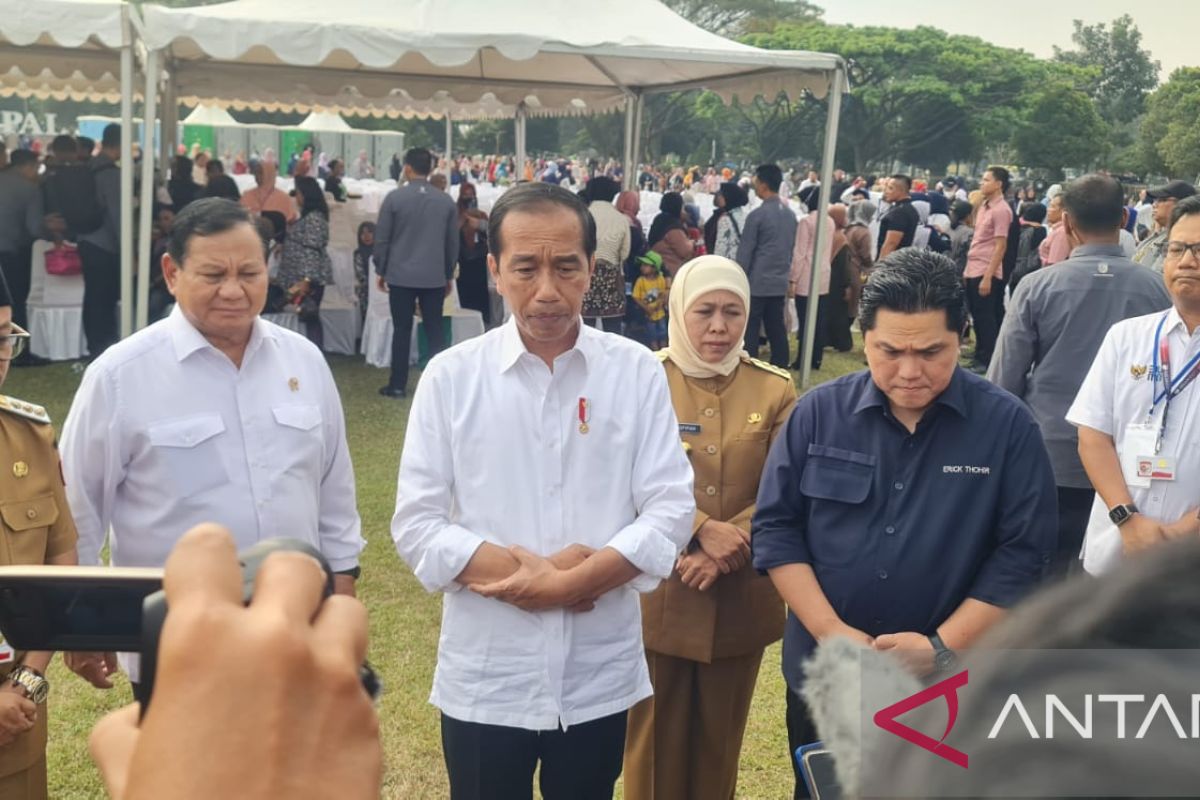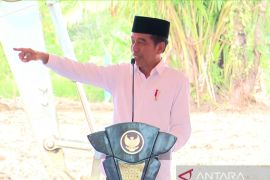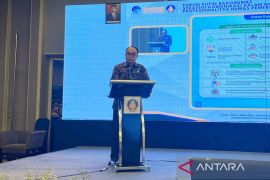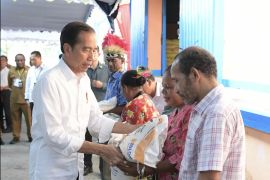We will be facing the El Niño phenomenon with unpredictable effectsJakarta (ANTARA) - President Joko Widodo (Jokowi) has asked state-owned enterprises (SOEs) and regional governments to strengthen and increase their budget for providing basic food assistance to the community as an anticipatory measure against El Niño.
El Niño is a phenomenon in which the sea surface temperature rises above normal levels in the central part of the Pacific Ocean. It can result in reduced rainfall and trigger drought in Indonesia.
"If possible, their budget for basic food assistance to the community must be strengthened and multiplied. We will be facing the El Niño phenomenon with unpredictable effects. Since it is related to the climate, it must be prioritized," he stressed after visiting a bazaar at Rampal Field, Malang City, East Java, on Monday.
He said that the budget for providing basic food assistance must be prioritized since El Niño could potentially disrupt food security.
Besides strengthening basic food assistance, the President ordered regional heads to increase the number of affordable markets in the regions.
It is hoped that the provision of affordable markets and basic food assistance will be prioritized for areas in need if El Niño disrupts public health, he added.
Widodo said that El Niño will cause a number of areas to experience prolonged drought, which could lead to crop failure.
He estimated that the impact of El Niño will begin to be felt by August 2023.
A number of countries, such as Vietnam and India, have stopped exporting rice, therefore Indonesia must prepare its own rice stocks for national consumption, he said.
"In other countries, the phenomenon has affected food stocks. India and Vietnam have stopped exporting their rice. We do not want terrible things to happen in our country but we must prepare for everything," he remarked.
Meanwhile, based on forecasts from the Meteorology, Climatology, and Geophysics Agency (BMKG), the El Niño and Positive Indian Ocean Dipole (IOD) phenomena will reinforce each other, which will cause this year's dry season to be drier than in previous years with low to very low rainfall.
If rainfall is usually around 20 mm per day, in the dry season, such rainfall may be recorded once a month or there may be no rain at all.
The peak of the dry season is predicted to occur from August to early September, with conditions expected to be much drier compared to 2020, 2021, and 2022.
Related news: BMKG warns of threat of El Niño-induced crop failure
Related news: Minister spotlights importance of regional mapping in facing El Niño
Related news: Bapanas to develop food early warning system to counter El Nino
Translator: Mentari Dwi G, Resinta S
Editor: Sri Haryati
Copyright © ANTARA 2023












